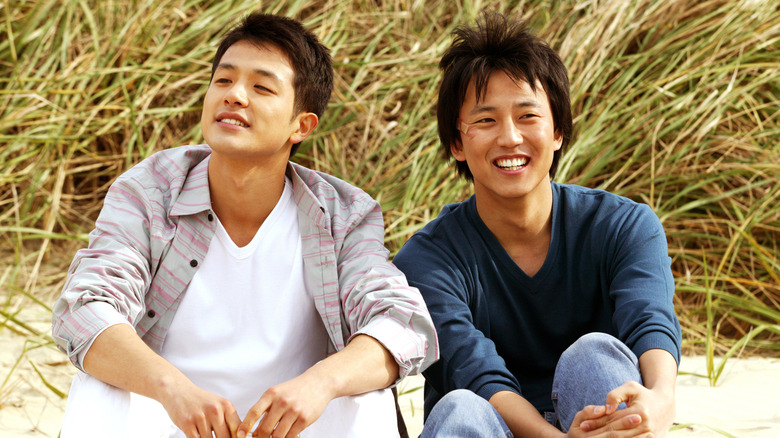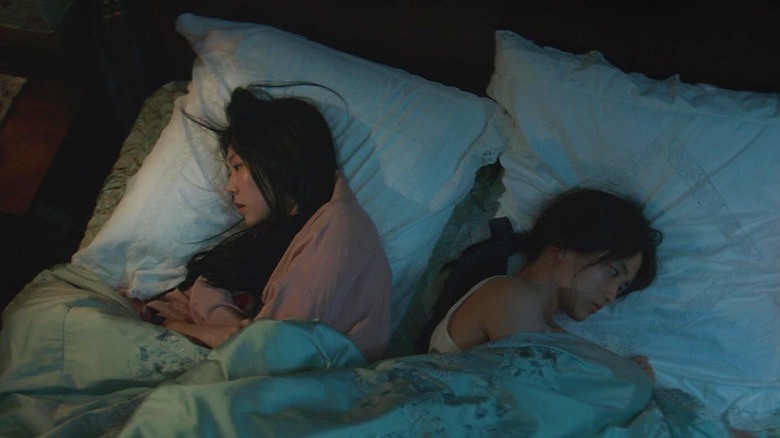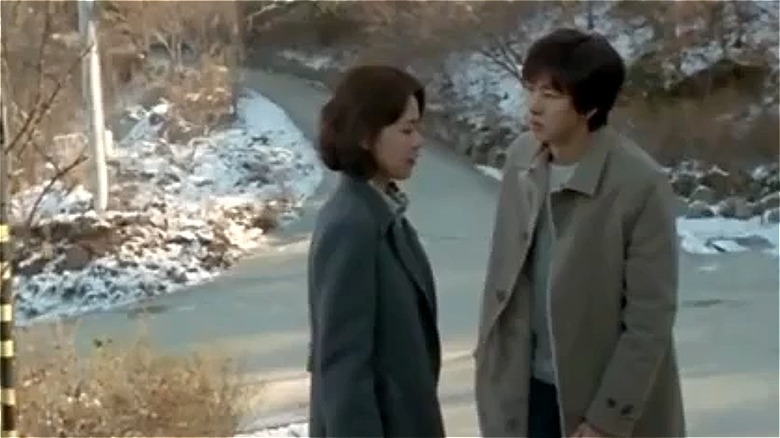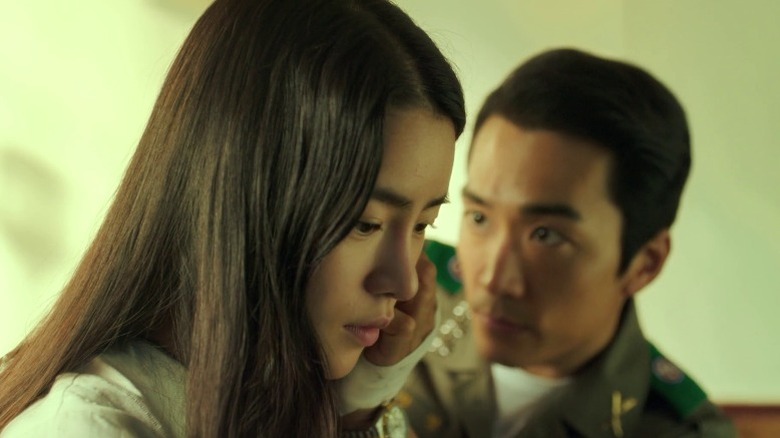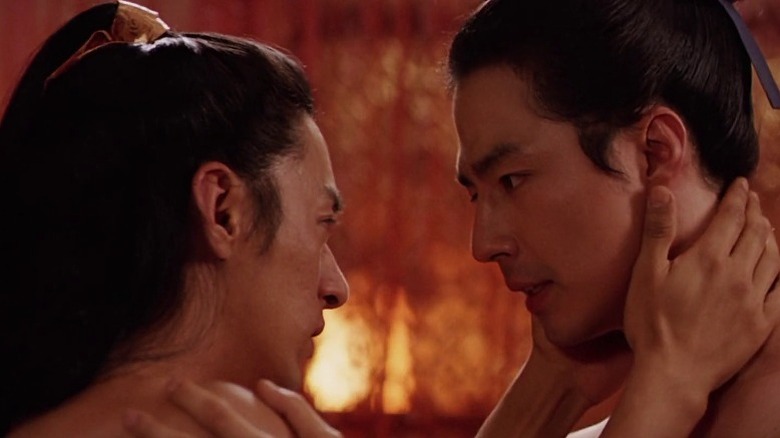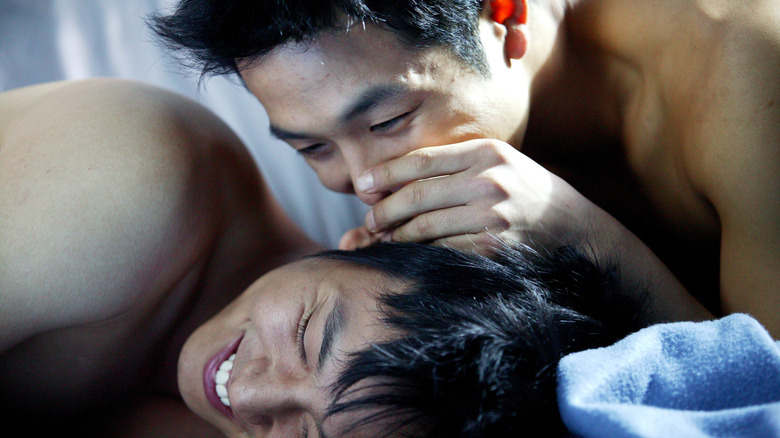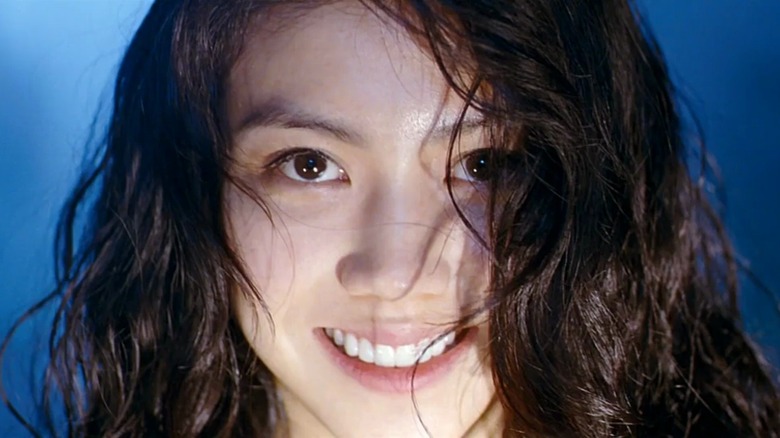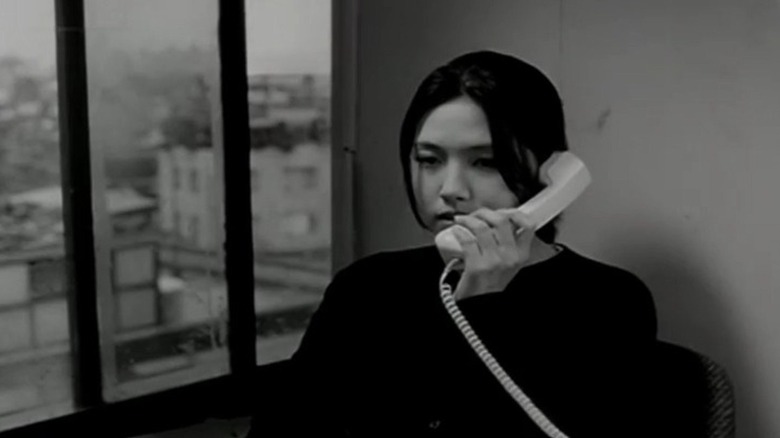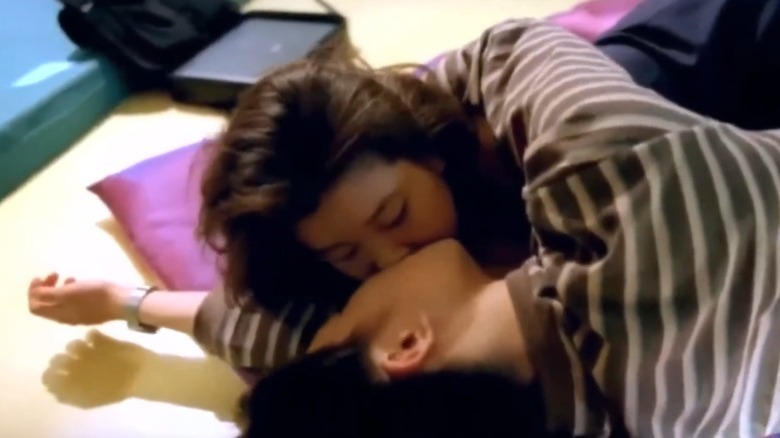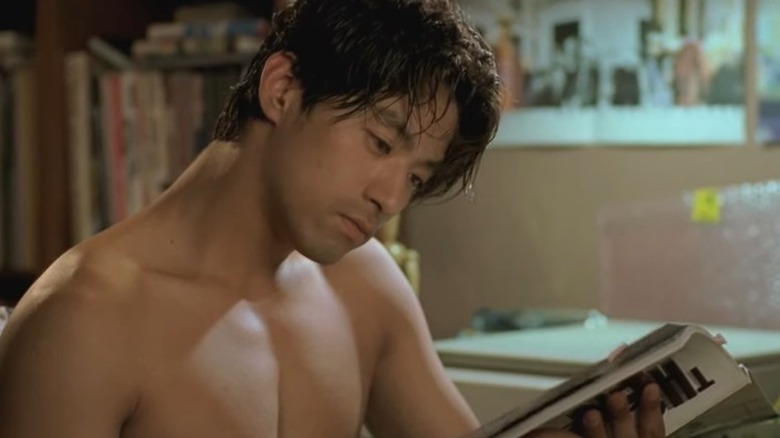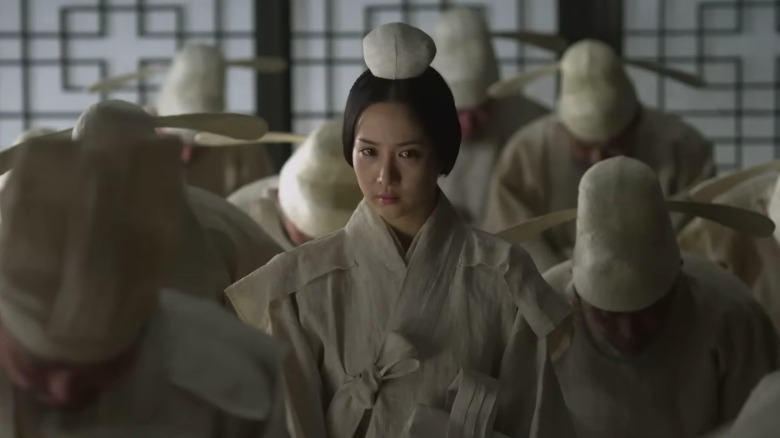The 5 Best Erotic Korean Romance Movies (That Are NOT 'Adult' Films)
All around the world, the past two decades have made South Korean cinema central to the media diets of inveterate cinephiles and casual Netflix surfers alike. And, within the vast realm of the country's audiovisual media, South Korean romance is a particularly fruitful and popular orchard. Whether in the form of television dramas or feature films, either you or someone you know has almost certainly had some exposure to the genre as it is practiced in the peninsula. Depending on where the media in question hails from, that exposure may have been to something pristine, soft-spoken, family-friendly, and even borderline chaste, as many popular romance K-dramas are wont to be. Or it may have just as well been to something steamy.
Erotic media in South Korea is a lot more prevalent than the near-absence of sex in some Korean streaming hits might lead you to believe. In fact, despite its recent struggles with social conservatism and moralistic hypervigilance, the country often has a much more relaxed attitude towards sex and sexuality in its mainstream, box-office-dominating films than Hollywood has had for the past two decades and change. Some of the best South Korean romance films feature sex as an overt, unrestrained component. That much is true of the films listed here, all of which go to show that the hectic and mysterious ways of the flesh are not a theme exclusive to pornography. From 14th-century palatial intrigue to contemporary gay messiness, here are five great erotic Korean romance films.
The Handmaiden
To start the list, here's a film that anyone with even a passing knowledge of recent South Korean cinema will almost definitely have heard of. One of the best, most beloved, and most successful films in the sterling career of Park Chan-wook, "The Handmaiden" somehow went home empty-handed at the notoriously masterpiece-stacked 2016 Cannes Film Festival, but the years have confirmed it as not only one of the most accomplished films of that year's lineup but also one of the very best South Korean movies, period.
In addition to boasting Park's orchestral craft at the arguable height of its power, with writing, directing, art, costuming, editing, and music all intertwining in a sumptuous unison, "The Handmaiden" also holds the distinction of being one of the recent mainstream queer films with the most upfront attitude toward sex. Following a plot adapted from Sarah Waters' "Fingersmith" in which a handmaiden named Sook-hee (Kim Tae-ri) is tasked with helping con wealthy 1930s heiress Lady Hideko (Kim Min-hee) out of her fortune, this steamy thriller has so many twists and turns that it's almost hard to keep up, but underlying it all is a tender, intensely passionate love story between two women rebelling together against the men who control them.
The sex scenes between protagonists Hideko and Sook-hee are famously graphic and over-the-top, but it's all in keeping with Park's maximalist vision — the sex that serves to explode the patriarchy's confines upon both women's bodies being, in itself, explosive.
Green Chair
You'd be hard-pressed to find a South Korean filmmaker who did more to help the country's cinema brave the repressive military dictatorship period and find liberation again than Park Cheol-su. A prolific filmmaker already in the 1970s and 1980s, when censorship compressed audience concerns over the country's problems into hit polemical melodramas that touched on those problems indirectly, Park later reinvented himself into an indie maverick. With South Korea democratized and censorship relaxed, the seasoned director took it upon himself to specialize in the kinds of taboo-breaking, sexually outré movies that weren't allowed before; his work in the '90s and 2000s was among the boldest in all of world cinema.
An example of that is "Green Chair," a 2005 film about Mun-hee (Suh Jung), a 32-year-old housewife who becomes infatuated with 19-year-old Seo-hyun (Shim Ji-ho) and initiates a torrid affair with him — even though the age of consent in South Korea is 20. In typical fashion for Park, the film observes with unflinching, unforgiving psychological attention as Mun-hee dynamites her life and even does jail time as a consequence of her dalliance with Seo-hyun. But in between narrative developments, the film also inhabits said dalliance about as explicitly as any film could without crossing into pornography.
"Green Chair" is the kind of movie that gives new meaning to the word "erotic" in "erotic drama," using sex as such an omnipresent tool to explore and deepen Mun-hee and Seo-hyun's complicated dynamic that it almost gets to be numbing.
Obsessed
One interesting thing about overt eroticism in South Korean cinema is that it isn't strictly the province of boundary-pushing experimenters like Park Cheol-su. As demonstrated by "The Handmaiden," even a lavish, crowd-pleasing South Korean historical drama can feature lots of sex. And, as demonstrated by "Obsessed," there doesn't even need to be a world-renowned master with carte blanche like Park Chan-wook at the helm to make that possible. The third feature directed by veteran screenwriter Kim Dae-woo, "Obsessed" is a decidedly mainstream movie that topped the South Korean box office in its first week of release. It's the kind of elegant, respectable, Merchant Ivory-indebted period romance that Americans might associate with a PG-13 rating or an unfair R for light profanity. But make no mistake: This is an erotic film.
The plot follows an extramarital affair between Colonel Kim Jin-pyeong (Song Seung-heon) and Jong Ga-heun (Lim Ji-yeon), the wife of a captain in Jin-pyeong's troop, against the backdrop of the Vietnam War in 1969 — and, like many films about extramarital affairs, "Obsessed" is suffused with the compulsive, breath-altering allure of the forbidden. The classiness of Kim Dae-woo's framing doesn't stop him from mapping out the bottomless desire experienced down to every lurid detail — the way it alters his eyes, his gestures, and his pattern of speech. And, as Jin-pyeong and Ga-heun begin their tryst, the film's tasteful but intense sex scenes prove instrumental in demonstrating the extent to which he has fallen madly in love with her. It's textbook sex-as-storytelling.
A Frozen Flower
Speaking of lush period romance films that happen to be heavily erotic, there's also "A Frozen Flower," a 2008 film directed by Yoo Ha and centered on a love triangle bizarre enough to make the members of New Order blush. The film, written by Yoo himself alongside Hwang Jin-Young, is about as gorgeous and opulent as period romances come, recreating Goryeo-era Korea with a particular eye for texture and color — which is apposite for a story that's all about sensuality and the electricity of human touch.
"A Frozen Flower" is historical fiction, but borrows liberally from the life of Gongmin of Goryeo, who ruled over the Korean Peninsula between 1351 and 1374. In the plot, the gay King of Goryeo (Ju Jin-mo) is facing political tension due to his lack of heirs, so he tasks his palace guard commander — and lover — Hong-rim (Zo In-sung) with impregnating his wife (Song Ji-hyo) in his place. After some resistance, Hong-rim and the Queen go along with the plan and set out to engage in some strictly procreative intercourse. Then, a complication ensues: Hong-rim and the Queen fall in love.
The movie is as delectably campy, frothy, and melodramatic as you might expect from that premise, and, though its view of queerness has aged a bit questionably, it doesn't skimp on the sex that Hong-rim has with either the royal husband or wife. You won't find another mainstream Korean bisexual romance with this much carnal intensity.
No Regret
Gay male romance media has been a massive market in South Korea for years now; the country is one of the leading hubs of the "boys' love" or BL genre of East and Southeast Asian art and entertainment. And "No Regret" was one of Korean BL's most significant breakthroughs. The 2006 movie is distinguished by the crucial factor of having been the first South Korean gay romance film from an openly gay director — namely, Lee-song Hee-il. And that rare (even to this day) distinction can be felt on screen in every moment, beginning with the film's willingness to engage profoundly and matter-of-factly with the characters' sexuality.
"No Regret" tells of Su-min (Lee Young-hoon), a directionless 18-year-old orphan bouncing between jobs in Seoul, who eventually lands work at a host bar where he's hired by the wealthy Jae-min (Kim Nam-gil). The two men soon fall in love, embarking on a relationship as passionate as it is hindered by social and logistical challenges. The film allows Su-min and Jae-min much more complexity and explores them much more deeply than the typical straight-friendly gay film would, and its sense of humor is recognizably steeped in lived experience as opposed to tired stereotypes. But what really cinches "No Regret" as the unmistakable work of a gay filmmaker is the fact that Su-min and Jae-min have lots and lots of openly-depicted sex. Tender and heartrending without sacrificing eroticism to appease a prospective heteronormative audience, "No Regret" is a high watermark for BL.
Thirst
"The Handmaiden" isn't the only Park Chan-wook thriller that features extensively depicted sex as a primary narrative component. Years earlier, with 2009's "Thirst," South Korea's foremost chronicler of the psychosexual filmed a Gothic horror romance that dove fully into the intrinsic eroticism of vampire fiction.
Adapting the 1867 Émile Zola novel "Thérèse Raquin" (which, funnily enough, is not a vampire novel), "Thirst" tells the story of Catholic priest Sang-hyun (Song Kang-ho), who agrees to undergo an experimental treatment to find a cure for the deadly Emmanuel Virus — only to be infected, die, and then get brought back to life by a mysterious blood transfusion. Now overcome with bloodlust, Sang-hyun finds himself drawn to Tae-ju (Kim Ok-vin), the wife of his childhood friend, Kang-woo (Shin Ha-kyun). At first, this setup seems like fodder for a simple and straightforward enough take on the vampire genre. But, of course, this being a Park Chan-wook movie, it slowly reveals itself not to be so simple.
First, this is because things are not quite as they seem when it comes to both Sang-hyun and Tae-ju. Secondly, though the film is based on a horror template, the story rapidly takes on a multitude of disparate genres and tones, including both campy, over-the-top comedy and scorching romance. The latter genre is carried out through lots and lots of sex, shot through with all the lurid passion of Sang-hyun's new nature and the tremulous urgency of his forbidden connection with Tae-ju. In fact, this was the first South Korean mainstream movie to feature full-frontal male nudity.
Virgin Stripped Bare by Her Bachelors
Hong Sang-soo is one of the most singular and idiosyncratic auteurs currently working in all worldwide cinema. His slow, small-scale, reiterative postmodern exercises collectively make up a treatise on the nature of filmmaking and storytelling themselves. Each one of his similarly themed films reveals new layers of the Hong Cinematic Universe, so to speak. But while cinephiles around the globe are well-acquainted with his inimitable avant-garde style by now, there was a time when Hong was still an up-and-comer, honing his craft and his preoccupations. It was during this time that he made "Virgin Stripped Bare by Her Bachelors," his third feature film overall and the first to take decisive steps towards overt experimentalism.
The late Lee Eun-ju stars as Soo-jung (who lends her name to the film's original title, "Oh! Soo-jung"), a cable TV writer who helps her video producer friend and boss, Young-soo (Moon Sung-keun), seek funding for an independent film by tagging along on a visit to the art gallery of Young-soo's wealthy friend, Jae-hoon (Jeong Bo-seok). Jae-hoon ends up taking an interest in Soo-jung, and, upon learning that she's never had sex, attempts to persuade her to lose her virginity to him.
In typical Hong fashion, we see this play out twice, in two different versions of the same story marked by slight but decisive differences. From that minimalist dramatic diptych, Hong is able to procure big, searing insights about the intricacies of power, the difficulties of human connection, and the mysteries of fate, accident, and free will.
Motel Cactus
Park Ki-yong's "Motel Cactus" is a little-known but essential chapter of the last 30 years of South Korean erotic cinema — or, better yet, four chapters. Taking place largely in Room 407 of the titular Seoul love hotel, "Motel Cactus" is a short, elliptic anthology that tells four different stories occurring at different points in time within those same walls, all of which feature sex and its various facets — sexual tension, sexual yearning, sexual frustration, sexual incompatibility — as a central theme.
In the first story, Hyun-joo (Jin Hee-kyung) celebrates her birthday with her boyfriend Min-koo (Jung Woo-sung) but finds that the passion between them has waned. In the second, college student Joon-ki (Han Woong-soo) is set to film a video project for a filmmaking class with the participation of actress Seo-kyung (Kim Seung-hyun), but complications ensue. The third sees Hyun-joo return for some rough and rowdy drunk sex with Suk-tae (Park Shin-yang), whom she met in a bar; then, after Hyun-joo leaves, Suk-tae calls up his old flame Hee-soo (Lee Mi-yun), and they have a regret-filled convo about their fraught past.
Each of these outwardly simple stories is given dazzling, expressionistic contours by the film's cinematography, supplied by habitual Wong Kar-wai collaborator Christopher Doyle, and, indeed, the pieces are dripping with the same sense of stylish melancholia found in Wong's '90s output. But "Motel Cactus," with its carefully choreographed, sharply observed, quasi-voyeuristic tales of sex as both a catalyst and a non-catalyst for emotional conflict, is much more than just a Doyle showreel. Any adventurous fan of Korean cinema would do well to give it a go.
Happy End
Not to be confused with the eponymous 2017 French film by Michael Haneke, Jung Ji-woo's 1999 cult favorite "Happy End" is a movie that hews to the tradition of the '90s erotic thriller as a space where paranoia, discomfiture, and fascination meet. As is often the case in the genre, domesticity is the realm of normality to be built up and defiled: Choi Bora (Jeon Do-yeon) and Seo Min-ki (Choi Min-sik) are a seemingly content middle-class couple that has settled into a modern division of labor, with Bora providing for her husband and baby while the unemployed Min-ki stays home and does the domestic work. Everything seems to be going well until Min-ki discovers that Bora is having an affair.
The affair in question, with former fling Kim Il-beom (Joo Jin-mo), is a torrid one, and "Happy End" makes a point of going into explicit detail in its depiction of Bora and Il-beom's budding intimacy, beginning with the film's opening sequence, an extended, graphic sex scene that sets the tone for everything to come. Yet Min-ki initially accepts and resigns himself to the situation, keeping to his domestic routine for the sake of their child. As Bora's affair grows more intense and Il-beom more demanding, however, the situation soon takes a turn towards ugliness, destruction, and violence.
As a pure thriller, it's the sort of entrancing slo-mo train wreck that you can't help watching through your fingers. On a deeper level, however, "Happy End" is an apt commentary about gender roles and the horrors wrought by male entitlement in Korean society.
The Concubine
Years before making history and becoming known internationally along with the rest of the "Parasite" cast, Cho Yeo-jeong was the first-billed star in a very different thriller about volatile power relations within close domestic quarters. Set during the Joseon dynasty, 2012's "The Concubine" stars Cho as Hwa-yeon, a nobleman's daughter who is forced to become a royal concubine. She eventually finds herself torn between her former lover, Kwon-yoo (Kim Min-joon), a commoner who finds employment in the royal court, and Grand Prince Sung-won (Kim Dong-wook), who has fallen deeply in love with her.
Much like "Obsessed" and "A Frozen Flower," "The Concubine" exemplifies South Korean cinema's proclivity for nonchalantly featuring graphic sex as an element in mainstream historical dramas. On top of that, Kim Dae-seung's soapy epic expertly balances its knack for steaminess with a hefty dose of twisty, frothy intrigue, shrewdly utilizing sex as a tool of character development while ensuring that every character has their own place in the film's "Game of Thrones"-esque palatial one-upping and double-crossing.
Even so, there's room for love amid the political bustle — and, once again, the sex scenes rise to the challenge of getting the emotion and sensuality across. It's a deliriously entertaining feat of "Dangerous Liaisons" riffing, with a little welcome carnality to go along with it. For her part, Cho Yeo-jeong is able to inhabit every facet of the movie, be it the scheming, the romance, or the particular physicality of the sex scenes, while ensuring that Hwa-yeon always comes across as a full, dynamic, believable human.
